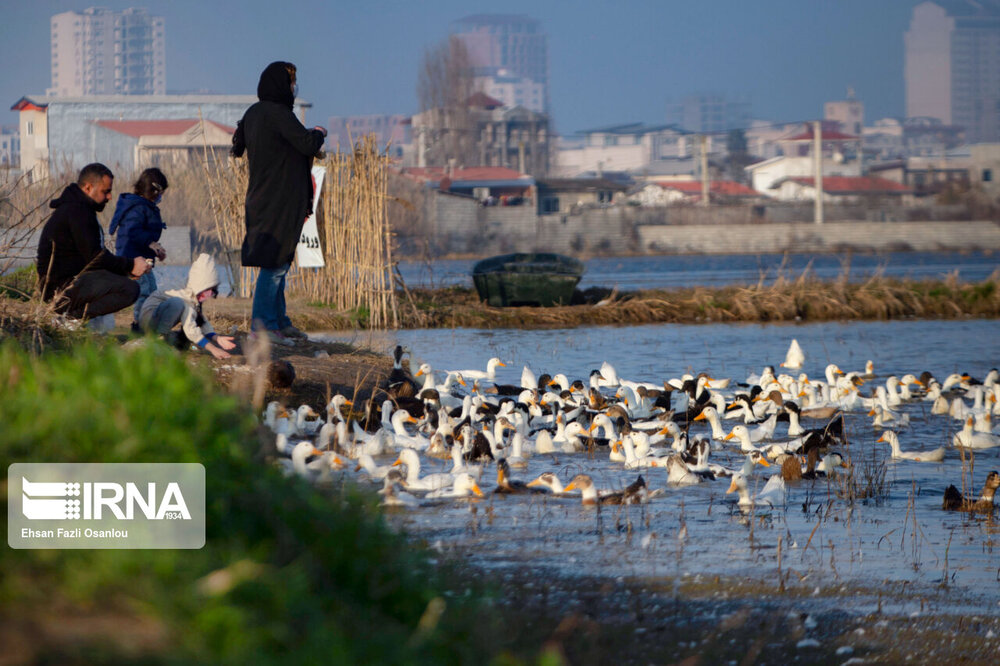Revival of wetlands by women, local communities

TEHRAN – The Department of Environment (DOE), as a pioneer of sustainable development in the country, has always tried to actualize the capacity of women and local communities to help preserve wetlands, director of the wetlands protection and restoration office of the DOE, has said.
For many years, the DOE has tried to elicit the participation of women and establish effective communication with local communities to preserve and revive the natural reserves, Arezoo Ashrafizadeh said.
In this regard, the Marine Environment and Wetlands Affairs, in the form of Iran's Wetlands Protection Plan, has set a pattern for people's participation in the restoration of Urmia Lake, she noted.
A significant part of these measures, which started in 2013, was to pay attention to sustainable livelihoods in rural and nomadic areas, and "diversification to livelihoods compatible with wetland resources" in two categories of "agricultural jobs" and "non-agricultural jobs".
The goal of implementing this project is to create and develop livelihoods compatible with wetland resources, reduce the pressure on natural resources, establish a sustainable agriculture program for wetlands, build the capacity of regional stakeholder networks, participate in local communities and manage sustainable agriculture.
It was planned to use the local capacities, especially the capacity of women in 54 villages in the four provinces of West Azarbaijan, East Azarbaijan, Fars, and Khuzestan, to preserve wetlands. It showed that women and locals are the most cooperative in preserving the environment and wetlands.
Women and the environment are the beating hearts of countries, but unfortunately, they have been neglected for many years, and perhaps now is the best opportunity to compensate for the past, considering the country's environmental conditions.
So, investing to empower women is an indirect investment to preserve the environment, as well as the education and training of locals.
Ashrafizadeh considered the participation of 76 percent of women in specialized training workshops and the participation of 66.5 percent of women in environmental information workshops in pilot villages as part of the achievements of the DOE.
Wetlands' importance
Wetlands are indispensable for the countless benefits or “ecosystem services” that they provide humanity, ranging from freshwater supply, food and building materials, and biodiversity, to flood control, groundwater recharge, and climate change mitigation.
Yet study after study demonstrates that wetland area and quality continue to decline in most regions of the world. As a result, the ecosystem services that wetlands provide to people are compromised.
Managing wetlands is a global challenge and the Convention presently counts 172 countries as Contracting Parties, which recognize the value of having one international treaty dedicated to a single ecosystem.
The Ramsar Convention uses a broad definition of wetlands. This includes all lakes and rivers, underground aquifers, swamps and marshes, wet grasslands, peatlands, oases, estuaries, deltas, tidal flats, mangroves, and other coastal areas, coral reefs, and all human-made sites such as fish ponds, rice paddies, reservoirs, and salt pans.
The Convention on Wetlands is an intergovernmental treaty that provides the framework for the conservation and wise use of wetlands and their resources.
It was adopted in the Iranian city of Ramsar in 1971 and came into force in 1975. Since then, almost 90% of UN member states, from all the world’s geographic regions, have acceded to becoming “Contracting Parties”.
In Iran, 141 wetlands with ecological value with an area of over 3 million hectares have been identified, of which 25 wetlands are designated as wetlands of international importance (registered in the Ramsar Convention) covering more than 1.4 million hectares and four sites are biosphere reserves.
Some 43 percent of the country’s wetlands have the potential to become a source of sand and dust storms (SDSs), Sediqeh Modarres, an official with the DOE, stated.
FB/MG
